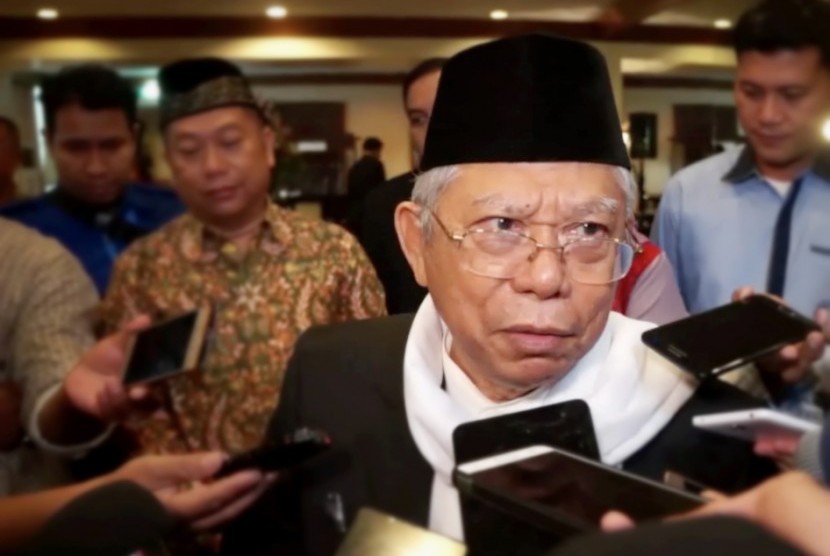REPUBLIKA.CO.ID, JAKARTA -- The Advisory Board of the Central Board of Nahdlatul Ulama (PBNU) Kiai Ma'ruf Amin said the discussion of the relationship between religious and state had been politically completed in the formulation of Pancasila, Indonesian Constitution, NKRI, and Bhinneka Tunggal Ika (unity in diversity). It meant that the relation between religion and the state, Islam and the state, already been settled with the inauguration of those four pillars.
But, Kiai Ma'ruf who is also the Chairman of Indonesian Council of Ulama (MUI) noticed the situation has become rowdy after the existence of radical groups, both in religion and secularism.
Kiai Ma’ruf said there was a misunderstanding among the religious radical group, especially Muslim, about the meaning of jihad in the middle of globalization era. It was interpreted as war, while jihad could also been interpreted as ishlahan or an improvement in the context of peaceful situation.
He explained that Indonesia and the other country was not a conflicted area (to conduct battle or war), but Darussalam. It was peaceful and under-agreement areas between Muslims and non-Muslims. “The relationship between Muslims and non-Muslims in Indonesia was bounded on an agreement to live together peacefully,” he said.
Kiai Ma’ruf said radicalism had no commitment of nationalism. Radical people had never been involved in the country development. So did the secular radicalism. They always tried to separate religion and state. "In fact, in Pancasila both religion and the state are united," said Kiai Ma'ruf.



